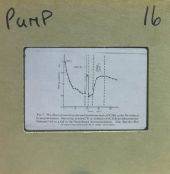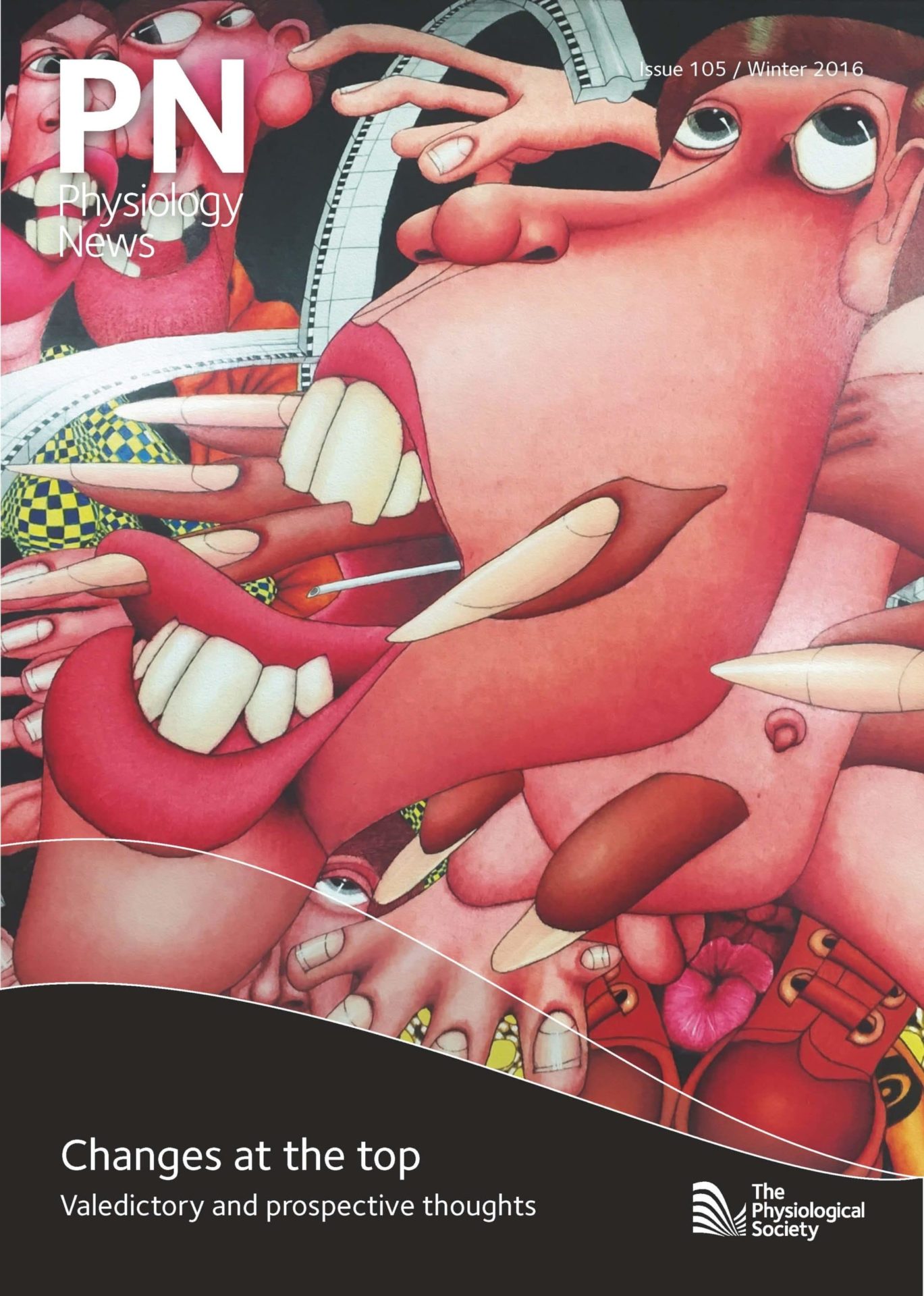
Physiology News Magazine
Editorial
News and Views
Editorial
News and Views
Roger Thomas
Editor
https://doi.org/10.36866/pn.105.5
This issue offers Physiology News its first opportunity since the Dublin AGM to include a variety of valedictory and prospective thoughts by old and new members retiring from or elected to Trusteeships and Executive posts. Although not yet retiring, the Honorary Treasurer has written, after some persuasion, a fascinating article about her role. The new President David Eisner has described his pleasure at his election, his gratitude for the work of his predecessor Richard Vaughan-Jones and our acting CEO Casey Early. He also welcomes our new CEO Dariel Burdass. She comes from the Microbiology Society. Is there a research area called microbial physiology, I wonder? (Yes of course, and there seem to be many related journals). I would myself like to welcome Julia Turan, the magazine’s new Managing Editor. She seems very helpful and efficient, much needed qualities in her new job.
This issue of Physiology News has no overall theme, and may well strike the reader as rather cobbled together, as indeed is this editorial. Actually all issues tend to be like that, in part because planning and being topical are rather mutually exclusive. Most authors do write their articles in good time, but not all do. Writing grant proposals has a much higher priority. Teaching too. As I write this editorial I am also planning a first-year lecture on ion transport. As it is about 51 years since I first lectured to students (on the sodium pump), this stimulates thoughts about changes that have occurred in the process of lecturing since 1965. My lectures of 51 years ago were to graduate students, and I myself hastily prepared 5 x 5 cm photographic slides (reverse-processing black and white 35mm film, a then cutting-edge technique) of key published figures. I still have some of them, as shown in the illustration! I probably devoted a whole lecture to the sodium pump; now my 50 min has to include several other ATPases, 49 ATP-binding cassette transporters and at least 390 members of the Solute-Linked Transporter superfamily.

When I started lecturing to undergraduates in 1970 it was all chalk and blackboard. Only histologists were expected to use slides. At first students had to make their own notes during the lecture, but later they were given quite detailed printed paper hand-outs. Meanwhile blackboards were replaced by overhead and then by PowerPoint projection. Students now expect the PowerPoints and the lecturer’s own notes to be on a web site. Just recently my department has stopped giving any paper handouts. We tell the students that note-taking is a valuable skill for use in real life if you are a medical practitioner. Many students do print out the website notes, though we discourage them. Throughout the last half-century, in spite of all the technological changes, the actual live lecture remains at the heart of the process of University education. Perhaps I have led too sheltered a life, and this is no longer true. Attendance at lectures here is voluntary, but at laboratory-based classes is compulsory.
I did wonder if I should write more about Brexit, but Karen covered this very well in her editorial in PN 104. If anything, the gloom has deepened in the last 3 months. What does Brexit really mean? Doom for those of you who get grants from Europe I suppose. Several recent Nobel laureates have expressed disquiet about the likely effect on British science. It is not just the likely loss of European-wide research projects, but the general chauvinism revealed since the referendum, and the denigration of experts by Michael Gove. How can such a view encourage support for research?
I was pleased to learn that the next Annual General Meeting of the Physiological Society is to be held in London rather than in Brazil, as originally contemplated in Dublin. When I went to my first AGM in the early 70s I was disappointed by how boring it was. I suspected this was part of a cunning plan to minimise attendance. As I rose in power in academia, I began to see that the views of people who had often not even read the agenda for important meetings could be a great nuisance. At the AGMs in the 60s there was no election result to announce, as in those days the committee nominated for election only the number of new members to replace the retirees. After several more dull AGMs I and four others set out in 1974 to nominate one more candidate as permitted by the rules, thereby forcing a real election. Our nominee was duly elected. The rest, as they say, is history. Eventually the committee even decided to nominate me! I was elected in 1977, and served for two years. When I nominated myself as a trustee about three years ago I was (apparently narrowly) rejected. Hah!
